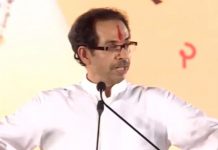
Director Deepa Mehta
Starring Satya Bhabha,
Siddharth Narayan,
Shriya Saran,
Shabana Azmi
WHILE THE commonest observation — to the extent that repeating it is slightly intellectually lazy — on watching a film based on a book is that it is not as good as the original, there are some films that make one re-examine why they liked the book in the first place. Deepa Mehta’s Midnight’s Children, based as it is on a book that was adjudged the greatest to come out of the Commonwealth in 40 years, is one such film.
Rushdie has said that the film is not an adaptation, but a “first cousin” to his masterpiece. If so, it is the dolled-up but incredibly shallow first cousin you smile at in family reunions, may even have a slight crush on, but with whom you cannot sustain a conversation beyond a few pleasantries. When it came out in 1981, Midnight’s Children was unlike anything that had been written before, indulgently playing around with language, narration and the nature of truth and breaking almost every rule of narrative fiction. Although it dealt with a weighty theme — the intertwined histories of its protagonist and postcolonial India — there was a refreshing, almost necessary, lightness that allowed the reader room to breathe and take it all in, and a complete lack of sentimentality. Mehta’s treatment is almost diametrically opposite. It discards almost all of Rushdie’s subtlety and replaces it with a badly written “love letter to India”, finishing with the cringeinducing spectacle of the end credits being played against a backdrop of the Indian map in sepia. Moreover, deprived of Rushdie’s biting social commentary, it becomes a series of events that occur to no particular end, quite like Les Misérables was hamstrung as a musical and film.
Last week, TEHELKA’s literary editor Shougat Dasgupta wrote in his piece on Deepa Mehta that it would be unfair not to acknowledge the “artistic risk Rushdie is taking to reduce a novel that is iconic, without question the great Indian novel (in English), to a screenplay… It is also unfair to Mehta, a considerable filmmaker who infuses the film with her own teeming, emotional style.” True, the fact that an attempt has been made to adapt a novel of this scale into a film is commendable, as is Rushdie’s gumption to roll up his sleeves and help with the unenviable task. But it is baffling that the dynamic duo refused to take the artistic risks that Rushdie took in writing the book.
“What’s real and what’s true aren’t necessarily the same,” Rushdie wrote in the novel, which is told through a notoriously unreliable narrator, whose version of the story is repeatedly challenged by his wife-to-be, Padma (who, sadly, is missing from the film). Mehta, however, presents the story as unimpeachably true, narrated not by a 30-year-old fearing the imminent disintegration of his body, but by an eminent Rushdie narrating his life story for no particular reason (it is telling that Rushdie’s narration is the best part of the film, allowing him to use some of his most memorable lines from the novel). This, of course, has its inevitable pitfalls: the question of Saleem’s nose, for instance. We know he was switched at birth, so cannot possibly be related to Aadam Aziz, whose exceptionally large nose he is said to have inherited. By not acknowledging, like Rushdie did, that the story has imperfections, Mehta leaves the question unanswered for viewers who notice the flaw.
This abandonment of imperfection is, with no little irony, possibly the most glaring flaw in the film. Mehta infuses every frame with a forced lyricism, attempting to get the perfect lighting, camera angles and background music. This works at places; the darkness of the Emergency, with the image of Shiva watching over the destruction of the magicians’ ghetto is, if not entirely subtle, beautiful. But it makes the film a typical Deepa Mehta work, robbing this most unique of books of its very personality.
Ajachi Chakrabarti is a Correspondent with Tehelka.
ajachi@tehelka.com













